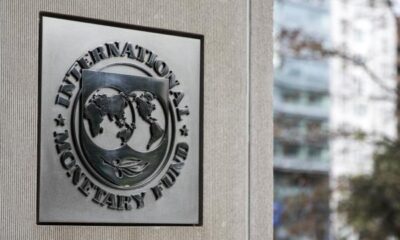According to State Finance Minister, Eyob Tekalign, Ethiopia will receive relief of $4.9 billion from its debt obligations after it completes a long-postponed restructuring. He expressed his optimism in signing agreements with creditor nations within the next few months.
Following its recent default on debt, the East African nation, which now ranks as the third largest economy on the continent, aims to resume its debt restructuring efforts. This objective has been facilitated by its recent agreement to a new financing package with the International Monetary Fund.
“We will sign and finalise with each individual (creditor) country over the next few months,” Eyob told Reuters, referring to the estimated savings to Ethiopia as a result of the restructuring.
According to figures from the finance ministry, the total external debt of the country was $28.38 billion in March of this year.
In a televised speech on Thursday, Prime Minister Abiy Ahmed clarified the recent economic reforms and stated that the anticipated savings would encompass $200 million resulting from the restructuring of the $1 billion Eurobond.
Abiy justified the recent transition to a market-based foreign exchange rate, asserting that its purpose is to narrow the disparity between the official and black market values and that it does not constitute a currency depreciation.
The central bank has implemented a policy where the birr currency is now permitted to fluctuate without any restrictions, meeting an important requirement to obtain financial assistance from the International Monetary Fund (IMF).
Subsequently, the birr has depreciated by at least 31.5% versus the dollar, currently trading at 83.94 per greenback, according to the Commercial Bank of Ethiopia, the country’s largest lender. This has raised concerns among economic analysts and pundits about the possibility of a significant increase in inflation.
“There were two markets. One is 100 and the other is 50. So when the gap between the two became wide, it brought many dangers. So what we said, (the two) should be unified,” Abiy said, chiding banks for failing to unify the two rates swiftly.
“I believe your approach is not correct. The rate you are currently posting does not ensure unification,” he told bank executives who were present when he spoke.
Following Abiy’s remarks, banks adjusted the exchange rates for the birr, resulting in a decline. Some banks are now quoting the exchange rate at 90 birr per dollar, which is closer to the prevailing black market rate of 118 birr per dollar.
Although the removal of foreign exchange trading limitations enabled Ethiopia to secure the IMF deal and money from other creditors such as the World Bank, authorities have taken action due to concerns over the policy’s inflationary effects on low-income households.


 Politics2 days ago
Politics2 days ago
 Metro2 days ago
Metro2 days ago
 Metro10 hours ago
Metro10 hours ago
 Metro1 day ago
Metro1 day ago































